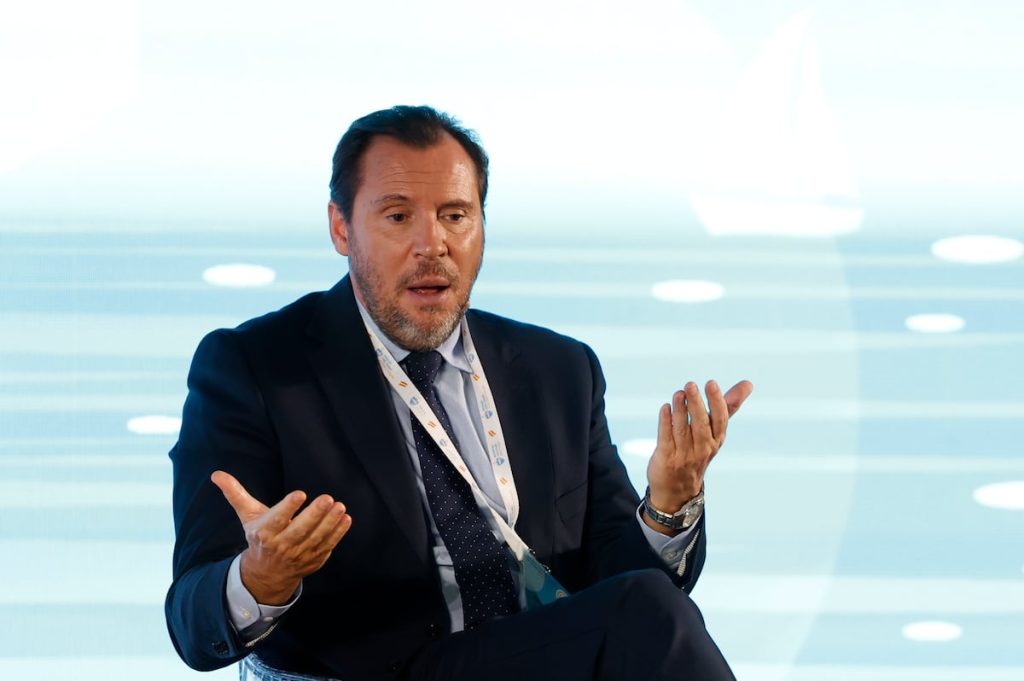The Minister of Transport and Sustainable Mobility, Óscar Puente, has accused the Supreme Court of following a political strategy in the realm of judges. In an interview on TVE Cataluña, Puente encouraged reading the report by Chief Prosecutor Pedro Crespo, which defends that the challenge against the amnesty law filed by the Supreme Court should not be admitted. He stated that the report contains basic legal arguments that question the actions of the Supreme Court, leading to the belief that a political strategy is being implemented within the judicial system. Puente criticized various judicial decisions, including the Supreme Court’s challenge of the amnesty law as “difficult to understand” and raised concerns about judges potentially assisting the PP in a political strategy to overthrow the government.
Puente also mentioned the case opened by the Supreme Court against the Attorney General for alleged disclosure of secrets. He claimed that the intention to prosecute the Attorney General was driven by the same individuals who challenge the amnesty law with legally unsustainable arguments. Puente highlighted leaked reports from the UCO (Central Operating Unit of the Civil Guard) to the media, which have not led to any judicial action. He questioned the fairness of attempting to prosecute the Attorney General for leaked emails involving tax fraud allegedly committed by an individual associated with the president of the Community of Madrid. Puente emphasized that he would not remain silent despite being part of the government, stating that such actions cannot be condoned and need to be addressed.
Following the revelation of tax fraud by Isabel Díaz Ayuso’s partner, the president of the Community of Madrid, misinformation circulated claiming that the Prosecutor’s Office had offered a deal if two crimes were acknowledged, when in fact it was Ayuso’s partner who had admitted to the crimes and sought the agreement. The prosecutor, who ordered a press release to clarify the situation, was accused of disclosing secrets and now faces charges by the Supreme Court. The confusion surrounding this case has further fueled concerns about the judiciary’s integrity and potential political motivations influencing legal proceedings.
Puente’s comments reflect a broader skepticism towards the judiciary and its independence, suggesting that political agendas may be influencing judicial decisions. The cases mentioned, including the challenge against the amnesty law and the prosecution of the Attorney General, raise questions about the impartiality of the legal system and the potential weaponization of legal processes for political gain. The Minister’s vocal criticism of these issues underscores the importance of maintaining transparency and accountability within the judiciary to uphold the rule of law and public trust in the justice system. Addressing these concerns is crucial to safeguarding the democratic principles and ensuring that legal proceedings are conducted fairly and impartially.
In conclusion, Minister Puente’s accusations against the Supreme Court for allegedly following a political strategy, along with his concerns about the prosecution of the Attorney General and implications for judicial independence, highlight the challenges facing the Spanish legal system. The need for transparency, accountability, and adherence to legal principles is paramount in ensuring the integrity of the judiciary and upholding the rule of law. Puente’s outspoken stance on these issues serves as a reminder of the importance of maintaining a strong and independent judiciary that operates free from political interference, ensuring justice and fairness for all individuals. The ongoing debate surrounding these cases sheds light on the complex intersection between law, politics, and governance, underscoring the need for a robust and impartial legal system to uphold democratic values and protect the rights of citizens.


